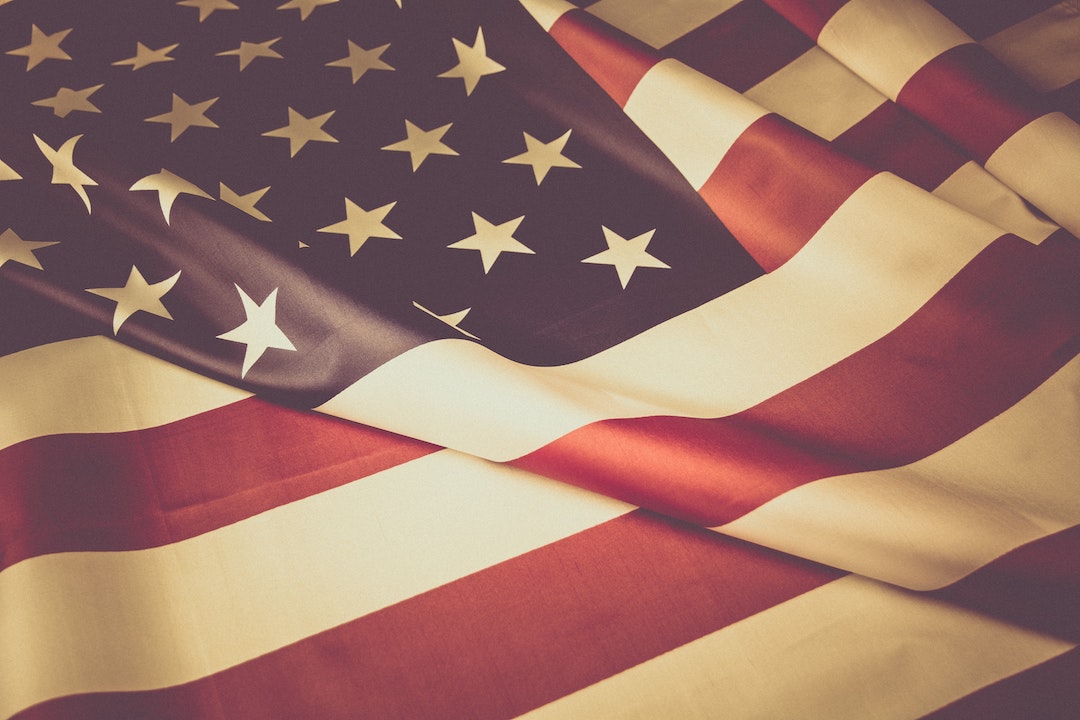 The wall-to-wall coverage of the upcoming presidential and vice presidential debates is in full swing ahead of tonight’s first tête-a-tête between President Obama and Governor Romney. Much of the coverage has zeroed in on the latest polls, the expectations game each side is playing and arm-chair quarterbacking what each candidate must do – or not do.
The wall-to-wall coverage of the upcoming presidential and vice presidential debates is in full swing ahead of tonight’s first tête-a-tête between President Obama and Governor Romney. Much of the coverage has zeroed in on the latest polls, the expectations game each side is playing and arm-chair quarterbacking what each candidate must do – or not do.
Ketchum’s Public and Corporate Affairs team in Washington has penned a viewer’s guide to consider while you watch the debates on Oct. 3, 11, 16 and 22. Based on our experience as political flacks and hacks, we’ve identified five key trends that will shape perceptions around the debates.
1) The Defining Moment
2) The Expectations Game
3) Social Media and Rapid Response
4) The Other Debate – Late Night/Soft Television Interviews
5) Battleground State Media
The Defining Moment – Nick Ragone, Partner, Washington Office Director
Since the first presidential debate in 1960 between Richard Nixon and John F. Kennedy, most debates – at least the decisive ones – have come down to a single, simple utterance that solidified, in an instant, the winner and loser. For Gerald Ford it was his unfounded contention that there was “no Soviet domination in Eastern Europe” – a misstatement that Jimmy Carter happily exploited with a furrowed brow of obvious incredulity. Four years later, Carter was on the receiving end of one of the most memorable lines in debate history when Ronald Reagan rhetorically asked if Americans were “better off today than they were four years ago” – a devastating indictment of Carter’s ineffectiveness. Many believe it was the turning point in the election. Reagan was at it again four years later with a wonderful response to the difficult question about his age — “I will not make age an issue of this campaign,” he said of his opponent, Walter Mondale. “I am not going to exploit, for political purposes, my opponent’s youth and inexperience.” The riposte disarmed his critics as he sailed to re-election.
In the three-way town hall debate between Bill Clinton, George H.W. Bush and Ross Perot in 1992, it wasn’t a phrase so much as a moment – Bush caught glancing at his watch as if he was late catching the bus – that crystallized, in a flash, the feeling that he was aloof and unconcerned about the crippling recession. In the final debate of 2000 between George W. Bush and Al Gore, it was Gore’s baffling “invasion” of Bush’s personal space – he nearly bumped into a startled Bush as the Texas governor was speaking – that sent the late night comedians into overdrive.
While the 2004 and 2008 debates lacked decisive or memorable moments, the 2012 Republican Primary debates were not without drama. Rick Perry’s campaign was doomed the moment he forgot the name of the third cabinet department (Energy) that he wanted to eliminate. The gaffe was so devastating, in fact, that debate meltdowns are now referred to as “pulling a Perry.” It’ll be interesting to see if there are any Rick Perry moments this time around for Obama or Romney.
The Expectations Game – Kathy Jeavons, Partner, Senior Vice President
I witnessed the “expectations game” from the inside in 1988 as a White House staffer. I remember well how we all fretted over the pundits’ predictions that the debates, particularly the first one, were a “must win” for George H.W. Bush who was polling at least 5-10 points behind Michael Dukakis at the time. We played down those expectations as much as we could, to make sure that if Bush “won” it was seen as a big victory. The Dukakis campaign did the same – to make the damage minimal if Dukakis “lost.”
Twenty-four years later, not much has changed. Campaigns play down expectations; pundits and the media play them up. What has evolved – to a frightening degree, in my opinion – is the “game’s” duration and intensity. I equate it with watching coverage on the national news of impending hurricanes; the predictions are almost always grave, because nothing makes for better TV than a category 3 storm making landfall.
History shows, however, that most debates don’t radically change the course of an election or its outcome. There are memorable moments, memorable lines, and memorable gaffes, always played up and analyzed ad nauseam. My personal favorite is Ronald Reagan, who when asked in the 1984 debate against Walter Mondale if his advancing age should be a factor in his re-election bid, replied humorously that he wouldn’t “exploit for political purposes his opponent’s youth and inexperience.”
For both the Romney and Obama campaigns, managing expectations is a necessary evil. For voters, enduring the hours of punditry and predictions for weeks leading up to the first debate can be exhausting and headache-inducing. Here’s my advice for anyone planning to tune into Wednesday’s debate – when you turn on your television, pretend you are an alien who just arrived from outer space. Observe the candidates and listen to what they say as though you have never seen or heard either of them ever before. If you do that, you’ll be a far better judge of the outcome – and what ultimately matters to you – than their campaign “spinners,” the pundits, or the Fourth Estate.
Beyond the Debates, the Stump Speech and the Campaign Ads – Laura Wilkinson, Senior Media Relations Specialist
During the 2000 presidential campaign, ABC News political correspondent Cokie Roberts was asked for her views on who won the third presidential debate: George W. Bush or Al Gore. Roberts quipped, “We have to see what the late-night comedians are saying, because sometimes they have a lot more effect than any of us political analysts.”
This has not gone unnoticed by the campaigns. More than four decades after President Richard Nixon proclaimed, “Sock it to ME?” on “Laugh-In,” and more than two decades after Bill Clinton played his saxophone while wearing a pair of sunglasses on the “Arsenio Hall Show,” appearances on late-night comedy shows and day-time talks shows are no longer a novelty, but rather a rite of passage for the presidential campaign trail.
Conventional wisdom argues that the first hurdle in political campaigning is just getting voters’ attention. And over the past 20 years or so, presidential campaigns advisers have recognized that they must go beyond political rallies, spending millions on campaign ads and the official debates to really grab Americans’ attention. That’s where Comedy Central’s “The Daily Show with Jon Stewart,” CBS’ “Late Show with David Letterman,” ABC’s “The View” or the NBC syndicated program “The Ellen DeGeneres Show” come into play.
Beyond the important role of burnishing a more likeable and relatable image of a presidential candidate – there are also strategic media implications to consider when booking these appearances. Not only do the candidates benefit from the media exposure of reaching the coveted viewership of these popular programs, these appearances also help the campaigns garner significant earned media coverage from conventional and online outlets – with almost exclusively positive or at least neutral results.
Social Media and the Rapid Response Machine – Jeremy Pelofsky, VP Media Strategist
And as campaigns adapt to the changing media landscape, never before in a presidential election has social media played such a significant role in shaping views about performance in the upcoming debates. In the past, senior campaign officials – and occasionally the candidate – would gather in rooms just outside the debate forums afterwards to talk with journalists, offering their insights about how their candidate performed well and also try to point out the foibles of the opponent. The so-called “Spin Room” was usually behind the scenes until recently, when 24-hour cable news cameras started going in live with the politicos in the heat of the moment.
During the upcoming debates, we will see that “Spin Room” transition to a live, as-it-happens sounding board thanks to social media, especially Twitter. Campaign aides – and journalists – will likely tweet out quotes, zingers, fact-checks and other musings in real-time during the debate. While some of that will be snipes at each other, the Twitter-verse certainly has become a go-to place for shaping opinion in the political environment. While the little things are not supposed to matter when deciding on a candidate, such as deep sighs caught on a live microphone or repeatedly checking your watch, they are magnified even more by Twitter (just ask Clint Eastwood).
If you’re interested in the new social media “Spin Room” you might want to follow: @DavidAxelrod, @stefcutter, @KevinMaddenDC, @andreamsaul. Recommended journalists: @steveholland1; @jonward11; @jaketapper; @chucktodd; @oknox; @philiprucker;
Battleground State Media – How it plays in Peoria – Jill Kermes, Senior Vice President
When all is said and done, however, it doesn’t really matter what’s said inside the Beltway. For all the opining and hot air from DC’s pundit elite, their view on who won the debates is largely irrelevant. This election will come down to voters in nine battleground states: New Hampshire, Virginia, North Carolina, Florida, Ohio, Wisconsin, Iowa, Colorado, and Nevada.
Paying attention to local media will be crucial. While working for Governor Jeb Bush’s administration during his 2002 re-election campaign, the I-4 corridor between Orlando and Tampa was one of the most important swing areas in the state. We knew those voters were watching their local television news and reading their hometown paper’s analysis of the debate. Winning for each candidate went beyond what happened on the debate stage: it also meant winning the front page headline and photo in the Orlando Sentinel or St. Pete Times the next morning.
The same holds true 10 years later. A Pew Research Poll recently confirmed voters are getting their information from local news, especially local TV. So if you want to wow your co-workers post-debate, run them through the battleground newspaper analysis (because we all know that’s who the newscasters will rely on for their copy). And you’ll see the national networks trying to zero in on undecided voters in local cafes in these battleground locations.
If you want to play along, the sites we’ll be watching: Tampa Bay Times: tampabay.com; Cleveland Plain Dealer: plaindealer.com; Charlotte Observer: charlotteobserver.com; and the Richmond Times Dispatch: timesdispatch.com. And, if you do tune into the national cable news for their morning after review, don’t be surprised to hear them sharing insights from local news coverage as well.
Enjoy the show!


